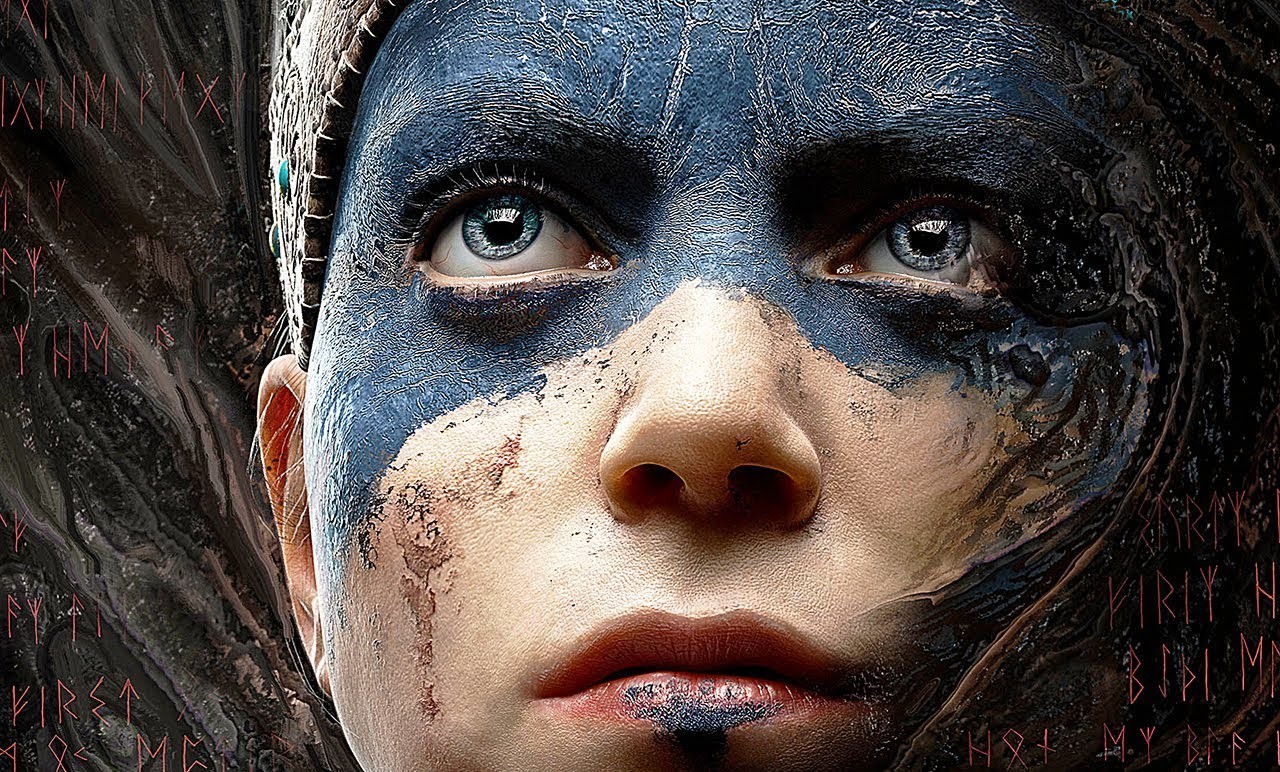Three Pillar Reviews!
Test Review #6 :Hellblade: Senua’s Sacrifice!

Highly Recommended for Immersion
Took me around 7 hours to complete
Even though highly rated, I’ve heard some valid complaints about Hellblade; it might not be for everyone.
Immersion Great Lighting and camera positioning, Unique game effects, best used with headphones
Hellblade gives a great atmosphere; cinematically it is pretty well done. Lighting, acting, character design and camera positions are top notch. It provides a great deal of immersion while playing.
The lore is pretty interesting at times, you’ll have to look for them throughout the world and some are easy to miss. They are in the form of runestones that you find throughout. You usually have a set talking about a specific topic, so you might not get the full picture if you miss one of the set. Although interesting, you could easily zone out, since it’s something heard, not read, and while you wander around listening to the lore, you could get distracted by the scenery and your objective to completely pay attention.
Hellblade has highly unique effects, which some people actually found troubling and annoying. One reoccurring effect is the voices you hear while playing. You hear voices almost always and I personally found it to be an amazing experience and is why headphones are highly recommended. They use binaural recording,which is why you’ll be missing out on a great experience if you opt out of using headphones. Some valid complaints I heard about this were that the voices are too distracting/annoying while you play, and many have either stopped using headphones or decreased the volume by a great deal, which I personally do not recommend.
Other effects include illusions and other sounds and lighting to add immersion and perhaps fear from the mentally ill character you are playing as.
Gameplay linear combat that isn’t very challenging, and simplistic puzzles you can find in flash games
The gameplay in Hellblade, is not bad, but not great either. It provided a good experience overall, so I’m not complaining.
The combat is more or less linear as I said. You pick it up very quickly and it’s more of the same thing over and over again. You have a special “ability” which makes you faster against weaker enemies, and much required against stronger enemies like bosses. There are some changes like an enemy using a shield, or a faster enemy which can throw axes at you. The strategy is pretty much the same throughout though. Despite that, the combat is very immersive, and the weight of the attacks and parries feel realistic.
The puzzles on the other hand are quite straightforward and all about perspective. Most of the time you will require to visualize a certain symbol using the environment around you. Other times you require to change between “light” and “dark” to proceed further. It’s a nice change of pace between combat and puzzles, but you can find puzzles like these in cheaper games or even flash games if you wish. They are glorified versions, so they could be fun, but they shouldn’t be the focal reason of you playing it.
Story Great deal of symbolism and motive, but not the strongest aspect of the game
As you are well aware, you play as a mentally ill character, “fighting for the soul of her dead lover.” As you progress, you get to know more about Senua’s mental illness and how she was treated for it. It was more of reminiscing, and less about current stories.
Some events could feel a little cryptic, but the symbolism isn’t too cryptic to leave you wondering what is going on. You can easily play the game as is and not give it a second thought. But for our more “philosophical” readers, they would enjoy the symbolism and why Senua would see what she sees, and fears what she fears.
You’ll be able to relate a lot to Senua, regardless if you have similar experience or not. You’ll find her scared and you’ll find her determined, you’ll see the voices agree with her and you’ll see the voices berate her.
Verdict
After I beat it, I considered Hellblade to be more of an experience rather than a story or a game. There isn’t anything negative about it, it could’ve been different, but I’d rather it to be safe and good than to be risky and fail.
Given that, you might not want to play it if you feel the game could get you scared because of its effects, especially if you don’t like the voices, as I personally think it is the main reason to play the game.
If you don’t think the effects could harm you in any way, then I highly suggest you play it, just for the experience and symbolism in a mentally ill person’s perspective.
——————————–
Have any of you played the game? I haven’t played it recently, please let me know if I might’ve remembered something incorrectly.
What do you think of my review? Any vital missing information I should’ve added?
Let’s talk in the comments!
Thanks for the review! Hellblade is certainly a game I want to play in the future, but I have to hold off until I get a PC beefy enough to run it smoothly. I’m very interested to see the story, I’ve heard a lot of praise on how Ninja Theory handled the theme.
My friends enjoyed playing Detroit, I’m curious to hear more opinions about it. I’ve personally played other games from Quantic Dream, and they’ve been a mixed bag. Fahrenheit especially wasn’t a game for me.
Detroit was a great great game, but it left much more to be desired, since it was open-ended